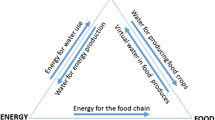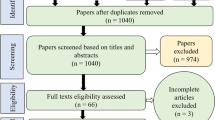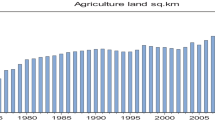Abstract
Moving to economic growth without water consumption growth is essential to sustainability of both water and economy. This work is aimed to estimate the decoupling state between economic growth and water consumption and then to investigate the effects of urbanization and environmental regulation on water consumption at national and subnational scales using panel data of 30 provinces in China from 2004 to 2019. The decoupling results show that (i) there are only two types between China’s water consumption and economic growth: weak decoupling (80%) and strong decoupling (20%); (ii) the weak decoupling has transitioned to strong decoupling after 2013; and that (iii) the decoupling degree of the water-poor region is weaker than that of the water-rich region. The results of causal relationships estimation show that an average 1% increase in urbanization level and environmental regulation leads to 0.3359% and 0.0104% drop in water consumption, respectively, which indicates that urbanization and environmental regulation have inhibited water consumption at the national scale. At the subnational sale, the effects of environmental regulation and urbanization on water consumption are heterogeneous. An average 1% increase in environmental regulation led to only a 0.0161% drop in water consumption in the water-poor region, whereas an average 1% increase in urbanization level led to only a 0.9838% drop in water consumption in the water-rich region. This means that the inhibition of environmental regulation on water use appears in the water-poor region, while the inhibition of urbanization is more prominent in the water-rich region.
Graphical abstract










Similar content being viewed by others
References
Arrow K, Bolin B, Costanza R, Dasgupta P, Folke C, Holling CS, Jansson BO, Levin S, Maler KG, Perrings C, Pimentel D (1995) Economic growth, carrying capacity, and the environment. Science 268:520–521
Balha A, Vishwakarma BD, Pandey S, Singh CK (2020) Predicting impact of urbanization on water resources in megacity Delhi. Remote Sens Applic Soc Environ 20:100361. https://doi.org/10.1016/j.rsase.2020.100361
Bekun FV, Alola AA, Sarkodie SA (2019) Toward a sustainable environment: Nexus between CO2 emissions, resource rent, renewable and nonrenewable energy in 16-EU countries. Sci Total Environ 657:1023–1029. https://doi.org/10.1016/j.scitotenv.2018.12.104
Berbel J, Borrego-Marín MM, Expósito A, Giannoccaro G, Montilla-López NM, Roseta-Palma C (2019) Analysis of irrigation water tariffs and taxes in Europe. Water Policy 21:806–825
Cai J, Yin H, Varis O (2016) Impacts of industrial transition on water use intensity and energy-related carbon intensity in China: a spatio-temporal analysis during 2003–2012. Appl Energy 183:1112–1122. https://doi.org/10.1016/j.apenergy.2016.09.069
Cai J, Yin H, Varis O (2018) Impacts of urbanization on water use and energy-related CO2 emissions of residential consumption in China: a spatio-temporal analysis during 2003–2012. J Clean Prod 194:23–33. https://doi.org/10.1016/j.jclepro.2018.05.117
Cao Y, Wan N, Zhang H, Zhang X, Zhou Q (2020) Linking environmental regulation and economic growth through technological innovation and resource consumption: analysis of spatial interaction patterns of urban agglomerations. Ecol Indic 112:106062. https://doi.org/10.1016/j.ecolind.2019.106062
Co-operation and Development (2001) OECD environmental strategy for the first decade of the 21st century: adopted by OECD environmental ministers. OECD
de Freitas LC, Kaneko S (2011) Decomposing the decoupling of CO2 emissions and economic growth in Brazil. Ecol Econ 70:1459–1469. https://doi.org/10.1016/j.ecolecon.2011.02.011
Dong F, Yu B, Pan Y (2019) Examining the synergistic effect of CO2 emissions on PM2.5 emissions reduction: evidence from China. J Clean Prod 223:759–771. https://doi.org/10.1016/j.jclepro.2019.03.152
Dumitrescu E-I, Hurlin C (2012) Testing for Granger non-causality in heterogeneous panels. Econ Model 29:1450–1460. https://doi.org/10.1016/j.econmod.2012.02.014
Fan J-L, Zhang Y-J, Wang B (2017) The impact of urbanization on residential energy consumption in China: an aggregated and disaggregated analysis. Renew Sust Energ Rev 75:220–233. https://doi.org/10.1016/j.rser.2016.10.066
Ford JA, Steen J, Verreynne M-L (2014) How environmental regulations affect innovation in the Australian oil and gas industry: going beyond the Porter hypothesis. J Clean Prod 84:204–213. https://doi.org/10.1016/j.jclepro.2013.12.062
Gleick P (1998) Water in crisis: paths to sustainable water use. Ecol Appl 8:571–579
Gu A, Zhang Y, Pan B (2017) Relationship between industrial water use and economic growth in China: insights from an environmental Kuznets curve. Water 9:556
Holtš Eakin D, Newey W, Rosen H (1988) Estimating vector autoregressions with panel data. Econometrica 56:1371–1395
Hu M, Hu Y, Yuan J, Lu F (2019) Decomposing the decoupling of water consumption and economic growth in Jiangxi, China. J Water Reuse Desalin 9:94–104
Hua Y, Dong F, Goodman J (2021) How to leverage the role of social capital in pro-environmental behavior: a case study of residents’ express waste recycling behavior in China. J Clean Prod 280:124376. https://doi.org/10.1016/j.jclepro.2020.124376
Im KS, Pesaran MH, Shin Y (2003) Testing for unit roots in heterogeneous panels. J Econ 115:53–74
Jaffe A (1995) Environmental regulation and the competitiveness of U.S. manufacturing: what does the evidence tell us? J Econ Lit 33:132–163
Jia R, Fan M, Shao S, Yu Y (2021) Urbanization and haze-governance performance: evidence from China’s 248 cities. J Environ Manag 288:112436. https://doi.org/10.1016/j.jenvman.2021.112436
Kao C (1999) Spurious regression and residual-based tests for cointegration in panel data. J Econ 90:1–44
Keiser D, Shapiro JS (2016) Consequences of the Clean Water Act and the demand for water quality. PSN, Water (Topic)
Klages S, Heidecke C, Osterburg B (2020) The impact of agricultural production and policy on water quality during the dry year 2018, a case study from Germany. Water 12:1519
Kong Y, He W, Yuan L, Zhang Z, Gao X, Zhao YE, Mulugeta Degefu D (2021) Decoupling economic growth from water consumption in the Yangtze River Economic Belt, China. Ecol Indic 123:107344. https://doi.org/10.1016/j.ecolind.2021.107344
Kontokosta CE, Jain RK (2015) Modeling the determinants of large-scale building water use: implications for data-driven urban sustainability policy. Sustain Cities Soc 18:44–55. https://doi.org/10.1016/j.scs.2015.05.007
Kookana RS, Drechsel P, Jamwal P, Vanderzalm J (2020) Urbanisation and emerging economies: issues and potential solutions for water and food security. Sci Total Environ 732:139057. https://doi.org/10.1016/j.scitotenv.2020.139057
Levin A, Lin C-F, Chu C-SJ (2002) Unit root tests in panel data: asymptotic and finite-sample properties. J Econ 108:1–24
Li R, Wang Q, Liu Y, Jiang R (2021) Per-capita carbon emissions in 147 countries: the effect of economic, energy, social, and trade structural changes. Sustain Produc Consump 27:1149–1164. https://doi.org/10.1016/j.spc.2021.02.031
Li W, Hai X, Han L, Mao J, Tian M (2020) Does urbanization intensify regional water scarcity? Evidence and implications from a megaregion of China. J Clean Prod 244:118592. https://doi.org/10.1016/j.jclepro.2019.118592
Li Y, Wang Y (2019) Double decoupling effectiveness of water consumption and wastewater discharge in China’s textile industry based on water footprint theory. PeerJ 7:e6937
Lim C-H, Song C, Choi Y, Jeon SW, Lee W-K (2019) Decoupling of forest water supply and agricultural water demand attributable to deforestation in North Korea. J Environ Manag 248:109256. https://doi.org/10.1016/j.jenvman.2019.07.027
Liu J, Yang W (2012) Water sustainability for China and beyond. Science 337:649–650
Liu X, Shi L, Engel BA, Sun S, Zhao X, Wu P, Wang Y (2020) New challenges of food security in Northwest China: water footprint and virtual water perspective. J Clean Prod 245:118939. https://doi.org/10.1016/j.jclepro.2019.118939
Liu Y, Li Z, Yin X (2018) Environmental regulation, technological innovation and energy consumption---a cross-region analysis in China. J Clean Prod 203:885–897. https://doi.org/10.1016/j.jclepro.2018.08.277
Lu IJ, Lin SJ, Lewis C (2007) Decomposition and decoupling effects of carbon dioxide emission from highway transportation in Taiwan, Germany, Japan and South Korea. Energy Policy 35:3226–3235. https://doi.org/10.1016/j.enpol.2006.11.003
Maddala GS, Wu S (1999) A comparative study of unit root tests with panel data and a new simple test. Oxf Bull Econ Stat 61:631–652
Mao Z, Xue X, Tian H, Michael AU (2019) How will China realize SDG 14 by 2030?— a case study of an institutional approach to achieve proper control of coastal water pollution. J Environ Manag 230:53–62. https://doi.org/10.1016/j.jenvman.2018.09.028
Mekonnen M, Hoekstra A (2016) Four billion people facing severe water scarcity. Sci Adv 2:e1500323
Mu L, Fang L, Dou W, Wang C, Qu X, Yu Y (2021) Urbanization-induced spatio-temporal variation of water resources utilization in northwestern China: a spatial panel model based approach. Ecol Indic 125:107457. https://doi.org/10.1016/j.ecolind.2021.107457
Organization (2021) Health topics water. Accessed 06-22:2021
Ouyang X, Li Q, Du K (2020) How does environmental regulation promote technological innovations in the industrial sector? Evidence from Chinese provincial panel data. Energy Policy 139:111310. https://doi.org/10.1016/j.enpol.2020.111310
Pan D, Tang J (2021) The effects of heterogeneous environmental regulations on water pollution control: quasi-natural experimental evidence from China. Sci Total Environ 751:141550. https://doi.org/10.1016/j.scitotenv.2020.141550
Pan X, Ai B, Li C, Pan X, Yan Y (2019) Dynamic relationship among environmental regulation, technological innovation and energy efficiency based on large scale provincial panel data in China. Technol Forecast Soc Chang 144:428–435. https://doi.org/10.1016/j.techfore.2017.12.012
Pedroni P (2001) Fully modified OLS for heterogeneous cointegrated panels. In: Nonstationary panels, panel cointegration, and dynamic panels. Emerald Group Publishing Limited, Bingley, pp 93–130
Phillips PC, Perron P (1988) Testing for a unit root in time series regression. Biometrika 75:335–346
PIATFORM (2015) Water and sanitation. Accessed 06-26:2021
Romero-Lankao P, Gnatz DM (2016) Conceptualizing urban water security in an urbanizing world. Curr Opin Environ Sustain 21:45–51. https://doi.org/10.1016/j.cosust.2016.11.002
Salerno F, Gaetano V, Gianni T (2018) Urbanization and climate change impacts on surface water quality: enhancing the resilience by reducing impervious surfaces. Water Res 144:491–502. https://doi.org/10.1016/j.watres.2018.07.058
Schewe J, Heinke J, Gerten D, Haddeland I, Arnell NW, Clark DB, Dankers R, Eisner S, Fekete BM, Colón-González FJ, Gosling SN, Kim H, Liu X, Masaki Y, Portmann FT, Satoh Y, Stacke T, Tang Q, Wada Y et al (2013) Multimodel assessment of water scarcity under climate change. Proc Natl Acad Sci 111:3245–3250
Shao S, Yang Z, Yang L, Zhang X, Geng Y (2020) Synergetic conservation of water and energy in China’s industrial sector: from the perspectives of output and substitution elasticities. J Environ Manag 259:110045. https://doi.org/10.1016/j.jenvman.2019.110045
Sjöström M, Östblom G (2010) Decoupling waste generation from economic growth — a CGE analysis of the Swedish case. Ecol Econ 69:1545–1552. https://doi.org/10.1016/j.ecolecon.2010.02.014
Song M, Zhao X, Shang Y, Chen B (2020) Realization of green transition based on the anti-driving mechanism: an analysis of environmental regulation from the perspective of resource dependence in China. Sci Total Environ 698:134317. https://doi.org/10.1016/j.scitotenv.2019.134317
Tam VT, Nga TTV (2018) Assessment of urbanization impact on groundwater resources in Hanoi, Vietnam. J Environ Manag 227:107–116. https://doi.org/10.1016/j.jenvman.2018.08.087
Tapio P (2005) Towards a theory of decoupling: degrees of decoupling in the EU and the case of road traffic in Finland between 1970 and 2001. Transp Policy 12:137–151. https://doi.org/10.1016/j.tranpol.2005.01.001
United Nations Department of Economic and Social Affairs (2015a) Sustainable development. Accessed 06-26:2021
United Nations Department of Economic and Social Affairs (2015b) Water for life decade. Accessed 06-25:2021
Wang Q, Han X (2021) Is decoupling embodied carbon emissions from economic output in Sino-US trade possible? Technol Forecast Soc Chang 169:120805. https://doi.org/10.1016/j.techfore.2021.120805
Wang Q, Wang L (2020) Renewable energy consumption and economic growth in OECD countries: a nonlinear panel data analysis. Energy 207:118200. https://doi.org/10.1016/j.energy.2020.118200
Wang Q, Wang L (2021a) How does trade openness impact carbon intensity? J Clean Prod 295:126370. https://doi.org/10.1016/j.jclepro.2021.126370
Wang Q, Wang L (2021b) The nonlinear effects of population aging, industrial structure, and urbanization on carbon emissions: a panel threshold regression analysis of 137 countries. J Clean Prod 287:125381. https://doi.org/10.1016/j.jclepro.2020.125381
Wang Q, Zhang F (2020) Does increasing investment in research and development promote economic growth decoupling from carbon emission growth? An empirical analysis of BRICS countries. J Clean Prod 252:119853. https://doi.org/10.1016/j.jclepro.2019.119853
Wang Q, Zhang F (2021a) The effects of trade openness on decoupling carbon emissions from economic growth – evidence from 182 countries. J Clean Prod 279:123838. https://doi.org/10.1016/j.jclepro.2020.123838
Wang Q, Zhang F (2021b) Free trade and renewable energy: a cross-income levels empirical investigation using two trade openness measures. Renew Energy 168:1027–1039. https://doi.org/10.1016/j.renene.2020.12.065
Wang Q, Zhang F (2021c) What does the China’s economic recovery after COVID-19 pandemic mean for the economic growth and energy consumption of other countries? J Clean Prod 295:126265. https://doi.org/10.1016/j.jclepro.2021.126265
water.org (2021) The global water crisis. Accessed 06-26:2021
Worldbank (2021) The world bank data. Accessed 06-26:2021
Xiangmei M, Leping T, Chen Y, Lifeng W (2021) Forecast of annual water consumption in 31 regions of China considering GDP and population. Sustain Produc Consump 27:713–736. https://doi.org/10.1016/j.spc.2021.01.036
Xie R-H, Yuan Y-J, Huang J-J (2017) Different types of environmental regulations and heterogeneous influence on “green” productivity: evidence from China. Ecol Econ 132:104–112. https://doi.org/10.1016/j.ecolecon.2016.10.019
Yu E, Hwang B-K (1984) The relationship between energy and GNP: further results. Energy Econ 6:186–190
Yu X, Wang P (2021) Economic effects analysis of environmental regulation policy in the process of industrial structure upgrading: evidence from Chinese provincial panel data. Sci Total Environ 753:142004. https://doi.org/10.1016/j.scitotenv.2020.142004
Yu Y, Zhou L, Zhou W, Ren H, Kharrazi A, Ma T, Zhu B (2017) Decoupling environmental pressure from economic growth on city level: the case study of Chongqing in China. Ecol Indic 75:27–35. https://doi.org/10.1016/j.ecolind.2016.12.027
Yu Z, Qingshan Y (2014) Decoupling agricultural water consumption and environmental impact from crop production based on the water footprint method: a case study for the Heilongjiang land reclamation area, China. Ecol Indic 43:29–35. https://doi.org/10.1016/j.ecolind.2014.02.010
Yuan F, Wei YD, Gao J, Chen W (2019) Water crisis, environmental regulations and location dynamics of pollution-intensive industries in China: a study of the Taihu Lake watershed. J Clean Prod 216:311–322. https://doi.org/10.1016/j.jclepro.2019.01.177
Zhang X, Geng Y, Shao S, Song X, Fan M, Yang L, Song J (2020) Decoupling PM2.5 emissions and economic growth in China over 1998–2016: a regional investment perspective. Sci Total Environ 714:136841. https://doi.org/10.1016/j.scitotenv.2020.136841
Zhang Y, Liu W, Cai Y, Khan SU, Zhao M (2021a) Decoupling analysis of water use and economic development in arid region of China – based on quantity and quality of water use. Sci Total Environ 761:143275. https://doi.org/10.1016/j.scitotenv.2020.143275
Zhang Y, Sun M, Yang R, Li X, Zhang L, Li M (2021b) Decoupling water environment pressures from economic growth in the Yangtze River Economic Belt, China. Ecol Indic 122:107314. https://doi.org/10.1016/j.ecolind.2020.107314
Zhang Z (2000) Decoupling China’s carbon emissions increase from economic growth: an economic analysis and policy implications. World Dev 28:739–752. https://doi.org/10.1016/S0305-750X(99)00154-0
Zhao C, Chen B, Hayat T, Alsaedi A, Ahmad B (2014) Driving force analysis of water footprint change based on extended STIRPAT model: evidence from the Chinese agricultural sector. Ecol Indic 47:43–49. https://doi.org/10.1016/j.ecolind.2014.04.048
Zhu H, Li W, Yu J, Sun W, Yao X (2013) An analysis of decoupling relationships of water uses and economic development in the two provinces of Yunnan and Guizhou during the first ten years of implementing the great western development strategy. Procedia Environ Sci 18:864–870. https://doi.org/10.1016/j.proenv.2013.04.116
Zhu S, He C, Liu Y (2014) Going green or going away: environmental regulation, economic geography and firms’ strategies in China’s pollution-intensive industries. Geoforum 55:53–65. https://doi.org/10.1016/j.geoforum.2014.05.004
Availability of data and materials
The datasets used and/or analyzed during the current study are available from the corresponding author on reasonable request.
Funding
This work is funded by the National Natural Science Foundation of China (Grant No. 71874203).
Author information
Authors and Affiliations
Contributions
Qiang Wang: conceptualization, methodology, software, data curation, writing—original draft preparation, supervision, and writing—reviewing and editing. Fuyu Zhang: methodology, software, investigation, writing—original draft, and writing—reviewing and editing. Rongrong Li: methodology, software, writing—original draft, and writing—reviewing.
Corresponding author
Ethics declarations
Ethics approval and consent to participate
Not applicable
Consent for publication
Not applicable
Competing interests
The authors declare no competing interests.
Additional information
Responsible Editor: Roula Inglesi-Lotz
Publisher’s note
Springer Nature remains neutral with regard to jurisdictional claims in published maps and institutional affiliations.
Rights and permissions
About this article
Cite this article
Wang, Q., Zhang, F. & Li, R. Do environmental regulation and urbanization help decouple economic growth from water consumption at national and subnational scales in China?. Environ Sci Pollut Res 29, 19473–19495 (2022). https://doi.org/10.1007/s11356-021-16667-4
Received:
Accepted:
Published:
Issue Date:
DOI: https://doi.org/10.1007/s11356-021-16667-4




